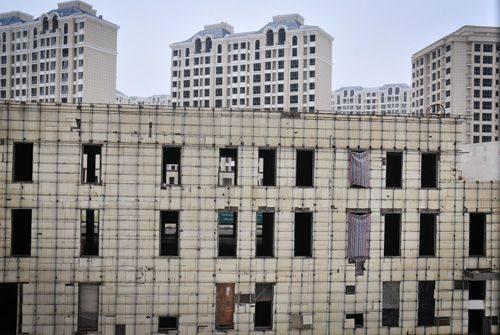外媒


《印度斯坦时报》 7月11日
China Slashes National Games Budget By 78 %
Sporting powerhouse China has slashed the budget for its National Games by 78 percent amid dramatically slowing economic growth and a government campaign to rein in public spending. Spending on the 12th games, to be held from Aug. 31st to Sept. 12th in Liaoning, will be kept to a maximum of 800 million yuan.
中国全运会预算削减78%
在经济增长放缓和政府严格控制公共开支的大背景下,体育强国中国决定将全运会预算缩减78%,被控制在8亿元人民币以内。8月31日至9月12日,第十二届全国运动会将在辽宁举行。缩减预算的决定不仅反映出官场风气的彻底转变,也折射出中国经济的现状。
《外交政策》 7月15日
Chinese Economic Growth Slows
Chinese economic growth slowed to 7.5 percent in the second quarter of the year amid efforts by the country's new leaders to rein in credit and pivot toward reforms. But there is no sign from the Chinese central government that they plan to intervene in the economy and inject more stimuli. "I think the second half will be even weaker. The government's tolerance for slower growth is definitely higher," Zhu Haibin, a JP Morgan economist said.
中国经济增长放缓
在中国的新领导层努力控制信贷并意图改革之时,今年第二季度中国经济增长7.5%。但是,中央政府并未释放出要干预经济,并出台更多刺激措施的信号。就职于摩根大通公司的朱海宾说:“我认为,第二季度增长势头将更为乏力。政府对低速增长率的容忍度明显较高。
《大西洋月刊》7月10日
China Set Law To Guarantee Filial Piety
Chinese government took filial piety to a whole new level when it passed a revised "Elderly Rights Law" in July , which allows seniors to sue their children for neglect. The particulars of the law may be lacking and elicited a caustic reaction from an online population. Its passage raises this question: Why, in a culture known for venerating the elderly, is enforcing filial piety even necessary?
中国为“孝道”立法
7月,中国政府将孝道推向全新的高度,通过了经修订的《老年人权益保障法》,允许老年人起诉子女照顾不周。这项法规的细节尚不完善,招致广大网民的嘲讽。这项法规的出台提出了一个问题:为什么在一个以尊老著称的文化里竟然需要强制执行孝道?
《福布斯》7月16日
Ghost City Will Not Block
Chinas Economic Development
On July 16th, Forbes released an article China May Have Ghost Cities but Rapid Growth Is No Apparition. The article believes that whatever overbuilding China may have done, it was simply insufficient to create an economic crisis, because Chinas debts, unlike those of the U.S. and most other countries, are owed to China itself.
鬼城不阻中国经济发展
许多批评人士往往会以中国的鬼城为证唱衰中国经济。7月16日,《福布斯》发表题为《中国虽有鬼城,但迅速的发展并非幻象》的文章,认为不管中国可能存在怎样的过度建设,都不足以导致经济危机,因为中国的债务与美国及其他国家不同,是内部债务。
路透社7月18日
Public Trust Crisis Threatens
China's Nuclear Power Ambitions
A plan to build a uranium processing plant in Jiangmen,Guangdong was canceled in July after about a thousand people took to the streets demanding the project was scrapped over public health and environmental fears. Experts say that the Chinese state-run nuclear power companies and local governments lack the communication skills to reassure the public at a time of heightened fears about safety. “China got a long way to go in developing public consultation," said Steve Kidd, former head of World Nuclear Association.
公共信任危机威胁中国核电雄心
由于约1000人走上街头,要求政府考虑公众健康和环境危害,取消计划建设的核燃料处理工厂的项目。最终,广东江门取消了这一项目。专家表示,在高度关注安全的时期,中国国有核电公司和地方政府缺少说服公众的交流技巧。世界核能协会会长史蒂夫·基德表示,中国在公共协商方面,还有很长的路要走。
英国广播公司7月18日
Chengguan in Linwu Killed Watermelon Farmer
Deng Zhengjia, in his 50s, was beaten to death by Chengguan with a scale weight on July 17th in Linwu County, Hunan. Chengguan are unpopular with the Chinese public after a series of high-profile violent incidents. Chengguans thuggish behavior had led to public anger and undermined stability.
临武城管打死瓜农
7月17日,50多岁的临武县瓜农邓正加被城管用秤砣打死(目前此案仍未定性—编者注)。一系列广受关注的暴力事件后,城管在中国民众眼中的形象陷入负面。城管帮助警察处理城市中的轻微犯罪,但这一群体的“暴徒行为”激怒了中国公众,带来社会不稳定因素。在许多中国公民眼中,他们成为肢体暴力、非法拘禁和偷窃的同义词。

